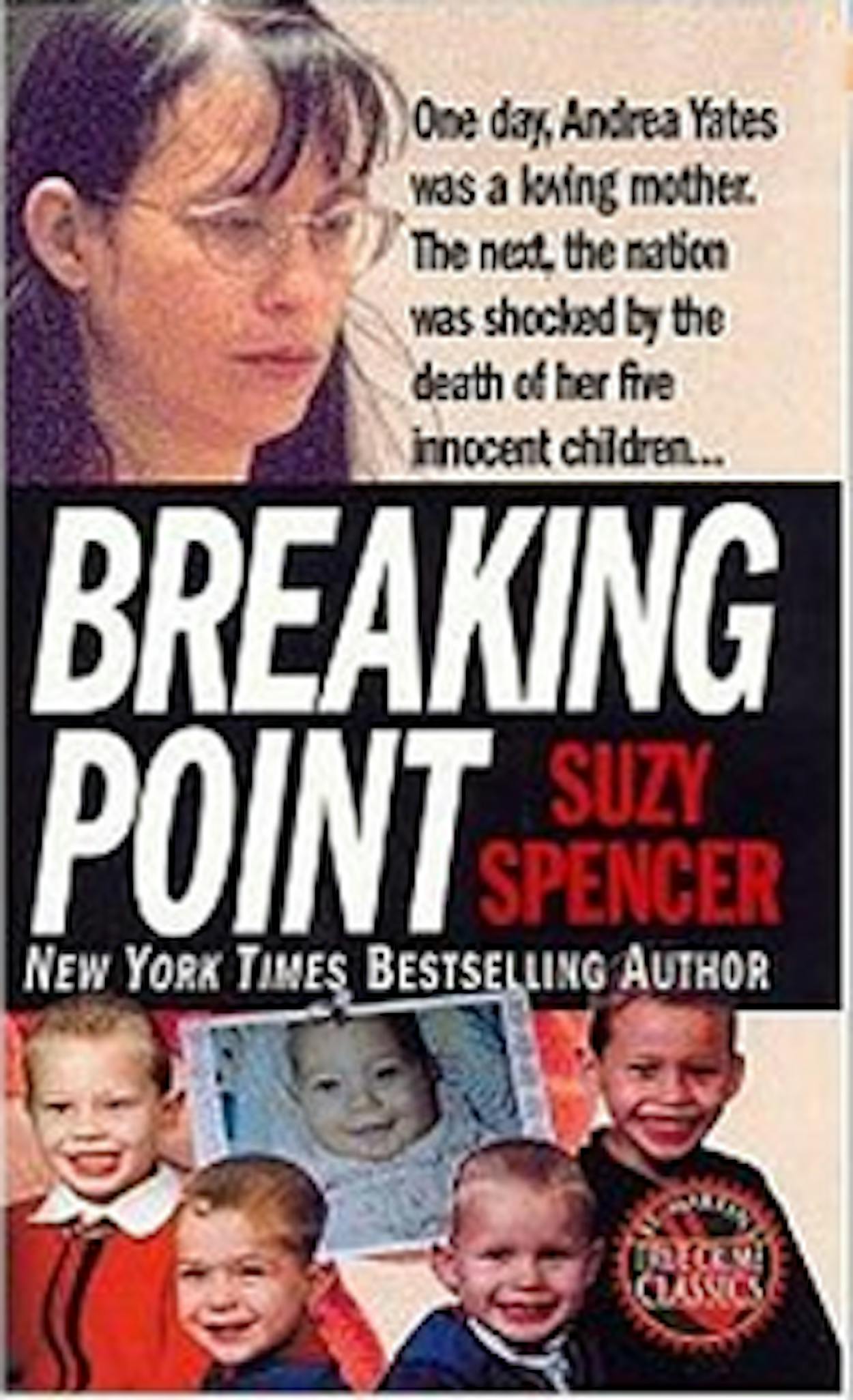In her new book, Breaking Point, true-crime author Suzy Spencer explores the case of Andrea Yates, the woman convicted of killing her five children. Spencer examines mental health care, depression, and the justice system as she tries to make sense of this tragedy. Here, she discusses her book and her thoughts about the case.
texasmonthly. com: In your book, you offer a somewhat sympathetic view of Andrea Yates. How is she a victim?
Suzy Spencer: I don’t know that I’d call her a victim. She was and is a woman suffering a very severe mental illness, schizophrenia, and who received inadequate medical treatment in the months preceding the murders. If she had received proper treatment, this tragedy would never have happened.
texasmonthly. com: While Yates had a history of mental illness, it appeared as though she was a loving mother. Was there a specific “breaking point”? What finally pushed her over the edge?
SS: As a friend of mine says, if one thing had gone right, Andrea Yates would not have killed her children. We could actually say there were several “breaking points”—getting pregnant a fifth time, her father’s death, not getting treatment quickly enough, and not getting proper treatment. But if we have to point to one “breaking point,” it would probably be being taken off her anti-psychotic two weeks before the murders. That means the anti-psychotic was completely out of her body at the time of the drownings. According to trial testimony, being taken off an anti-psychotic prematurely can worsen the psychosis and cause brain damage.
texasmonthly. com: You spoke with Andrea’s husband Russell (Rusty) Yates. What were your impressions of him?
SS: I have very mixed emotions about Rusty. What has never come across in the media is that Rusty has a very sweet, charming, little boy side that can enrapture women. You can be with him, hear him explain his points of view, which seem rational and plausible when with him. But walk away, think about them on your own, and you go, “WHAT?!” Andrea Yates never had time to get away and think on her own. Also, in my opinion, Rusty Yates has tunnel vision about what he believes and wants. And he’s not going to let anything get in the way of his goals—not mental illness, not a judge’s orders, not anything.
texasmonthly. com: Do you hold him at all responsible for what happened?
SS: Rusty Yates is a man whose five children died. I don’t want to point fingers at a man who has lost five children. Do I wish he’d taken Andrea to the doctor who successfully treated her in 1999? Yes. I’m sure Rusty wishes he had, too.
texasmonthly. com: What other research went into the writing this book?
SS: I attended the kids’ funeral. I stared into the bathtub in which they drowned. I combed through Andrea’s medical records, often with the help of psychiatric nurses who had worked at her last psychiatric treatment facility. I attended Andrea’s competency hearing. I talked with teachers who knew Andrea as a teen and women who had spent time with Andrea and the kids. I talked with neighbors who knew the Yates family when they lived in the 350 square foot bus. I spent hours and hours talking with Rusty. I talked to people who knew Rusty as a teenager, who had worked with him at NASA, and who go to his current church. I studied literature, audio tapes, and letters from his previous preacher. I even talked to people who had cut Andrea’s and Rusty’s hair . . . and on and on.
texasmonthly. com: How has your understanding of this case changed since you took it on?
SS: While I was researching it, I repeatedly found myself carefully watching mothers with their children, to make sure the children were safe. That has passed. But I am fanatical about mental health and preaching how it can strike any family. I mean any family, including those with valedictorians, athletes, NASA engineers, lovers of Jesus, and perfect children. As such, I’ve gone on the board of directors of the Austin Child Guidance Center, which provides mental health care to children with psychological, emotional and behavioral problems. Check out their Web site at www.austinchildguidance.org.
texasmonthly.com: What do you believe would be a fair punishment for Mrs. Yates?
SS: I think more in terms of what would have been fair to the taxpayers of Harris County. If Andrea Yates had been sent straight to a psychiatric facility, the taxpayers of Harris County would have had the exact same result as an expensive trial, without the cost.
texasmonthly. com: Why did you decide to publish before the end of the trial?
SS: That was my publisher’s decision.
texasmonthly. com: After the publication of your book, you were denied credentials to cover the Yates trial, and you sued as a result. Why were you denied and what did you need them for? Are you planning a follow-up piece?
SS: A follow-up piece has been written and is sitting on my editor’s desk in New York. To read an essay I wrote for the Center of Individual Freedom about my experiences with the court, check out http://www. cfif. org/htdocs/freedomline/current/guest_commentary/crime_writing1. htm







